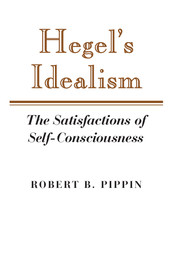Summary
Essence and the problem of idealism
The “Logic of Being” had been an account of the interrelated concepts necessarily involved in the attempt to think being as it is in itself, immediately. It had been, that is, a logic of the concepts and the relation among concepts involved in the attempt to think determinately about reality, when reality is generally construed within a certain kind of theory, a precritical realism. However, aside from a “bad,” infinite list of qualities, or a quantitative specification that turns out to be “indifferently” related to its qualitative implications, determinacy is just what the project of being had not achieved. (If the object of thought is so stipulated, there could not be thought of such an object, and so in the idealist sense of the claim as I am attributing it to Hegel, there could not “be” such an “actual” object.) Such determination, it was argued, required more than the specification of directly apprehended qualities, qualities that one object had and another did not. The object itself would not be picked out unless it it were (impossibly) distinguished from literally everything by such a procedure. We need to know the ground by virtue of which we can claim that having such properties distinguishes this thing as such and can be used to contrast a “qualitative thing” (a kind of thing) with its contraries. And such a basis for the contrastive use of properties involves more than attention to the properties themselves; it involves, we now hear, what Hegel calls an “act of reflection.”
- Type
- Chapter
- Information
- Hegel's IdealismThe Satisfactions of Self-Consciousness, pp. 201 - 231Publisher: Cambridge University PressPrint publication year: 1989

